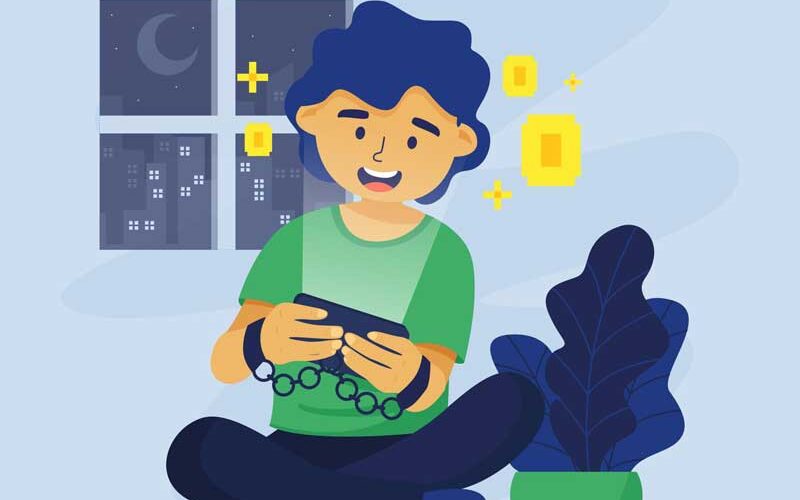The impact of gaming on mental health is multifaceted and increasingly recognized. A comprehensive global survey encompassing 13,000 players across 12 countries illuminated significant insights into this phenomenon. Notably, a staggering 71 percent of participants identified video games as effective stress relievers. Moreover, 55 percent reported using video games as a means to cope with feelings of isolation, while 64 percent turned to gaming to address everyday challenges. These findings challenge prevailing beliefs regarding the potential harm of video games, as the majority of players perceive gaming as beneficial to their mental well-being (United Nations, 2023). This growing acknowledgment underscores the need for a nuanced understanding of the role of gaming in mental health, recognizing its potential as a tool for relaxation, social connection, and problem-solving.
Potential Health Benefits of Gaming
Gaming transcends mere entertainment, serving as a platform for virtual community building and cognitive enhancement. Studies indicate potential cognitive benefits, such as improved attention control and spatial awareness, derived from gaming experiences. Furthermore, gaming demonstrates therapeutic potential, aiding patients with degenerative diseases in balance improvement and assisting young individuals with ADHD in enhancing their cognitive abilities (Grinspoon, 2020).
To reinforce this perspective, the World Health Organization (WHO) of Europe initiated discussions recognizing the mental health benefits of video games. Amid the COVID-19 pandemic, gaming emerged as a crucial outlet for escape, social interaction, and relaxation for many individuals. WHO collaborated with 18 game industry entities to disseminate COVID-19 prevention messages and launched a campaign encouraging online gamers to maintain an active lifestyle and prioritize mental well-being (United Nations, 2023). This collaborative effort underscores the evolving recognition of gaming’s positive impact on mental health and highlights its potential as a tool for promoting well-being during challenging times.
Excessive usage may be harmful.
Despite the myriad benefits associated with gaming, Harvard Medical School underscores the potential for disproportionate engagement with video games to lead to psychological issues, notably gaming addiction, characterized as Internet Gaming Addiction (IGA). According to the American Psychological Association, diagnosing IGA involves meeting at least five of nine criteria over a span of 12 months, including gaming preoccupation, withdrawal symptoms, tolerance, loss of interest in other activities, downplaying gaming use, compromised relationships or academic/career opportunities, using gaming to escape negative emotions, inability to control gaming behavior, and persistent gaming despite psychological repercussions.
Research published in the American Journal of Psychiatry estimates that between 0.3 percent and 1.0 percent of Americans are affected by IGA. Additionally, excessive gaming can lead to repetitive stress injuries in the hands and arms due to the repetitive motions involved. Left untreated, these injuries may result in numbness, weakness, and permanent damage. Therefore, while acknowledging the benefits of gaming, it’s essential to recognize and address the potential risks associated with excessive or problematic gaming behavior.
Moderation and education
Harvard Medical School emphasizes that moderation is crucial in mitigating the potential harm of gaming. Many negative impacts associated with gaming can be alleviated by limiting screen time and maintaining a balance between healthy activities like exercise and face-to-face social interactions. Education on injury prevention plays a vital role in averting physical harm. Implementing simple practices such as taking regular breaks, ensuring adequate sleep, and incorporating stretching exercises can significantly reduce the risk of repetitive stress injuries (Grinspoon, 2020). By promoting responsible gaming habits and adopting preventive measures, individuals can enjoy the benefits of gaming while minimizing its potential negative consequences on both physical and mental health.
Conclusion
In conclusion, gaming presents a complex landscape of both advantages and drawbacks. Beyond mere entertainment, gaming fosters virtual communities and offers cognitive benefits, as acknowledged by the World Health Organization during the COVID-19 pandemic. However, excessive gaming can result in various physical and psychological issues that warrant attention. Harvard Medical School underscores the importance of moderation in gaming consumption to mitigate its negative effects. Moreover, education on gaming practices is essential to prevent physical injuries and promote responsible gaming habits. By recognizing the dual nature of gaming and adopting measures to address potential harms, individuals can maximize the benefits of gaming while minimizing its adverse impacts on their well-being. Striking a balance between enjoyment and responsible use is paramount to navigating the evolving landscape of gaming in the digital age.
Reference
Grinspoon, P., 2020. The health effects of too much gaming. [online] Harvard Health Publishing. Available at: https://www.health.harvard.edu/blog/the-health-effects-of-too-much-gaming-2020122221645. (Accessed 12 January 2024).
United Nations., 2023. Video Games and Mental Health: A Surprising Ally. [online] United Nations. Available at: https://unric.org/en/video-games-and-mental-health-a-surprising-ally/. (Accessed 12 January 2024).
